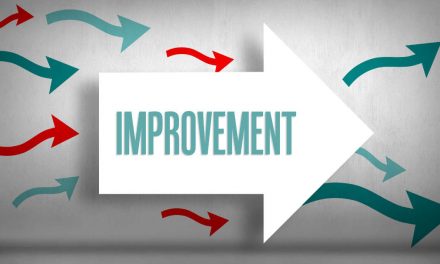By Jack Cumming
Have you ever read The Autobiography of Andrew Carnegie? I hadn’t until now, though I sure wish I had read it when I was still a lad. If you don’t know of him, Andrew Carnegie rose from humble beginnings in Scotland to become one of the wealthiest Americans.
Apprenticeship Learning
Moreover, unlike, say, John D. Rockefeller, he built his wealth with little controversy, and having attained wealth, he spent the rest of his life creating public libraries and similar philanthropies. Although he had little schooling, he wanted all people with origins like his to have the same advantage of self-learning that access to books gave him.
There is much that we can learn today from him. To start with, even the most humble employment provides a business education beyond what the best colleges offer. If you are working as an entry-level aide in a senior living community, you are uniquely positioned to learn the business, to learn about people and leadership, and to see what changes might make the business thrive for the future.
Carnegie started in a different era, so his first job as a 14-year-old was running telegrams in the days before telephones. Believe me, that’s like helping the frail and failing. No matter how humble the task may seem, performance and commitment elevate the menial above the mighty.
Immigrant Dream
Like many immigrants, Carnegie was inspired from infancy by his father’s dream of prosperity in America. His father intoned a favorite ditty which will echo with many immigrants today.
To the West, to the West, to the land of the free,
Where the mighty Missouri rolls down to the sea;
Where a [person] is [noble] even though [they] must toil*
And the poorest may gather the fruits of the soil.
The life of an immigrant can be demanding, humbling, and tough, but it builds character and integrity. Happy the immigrant who overcomes the trials of entry to share in the fruits of the land. Senior living is blessed to be able to give many immigrants their start.
Learning Vs. Studying
Carnegie describes the education that he got from the successful businesspeople he met as a messenger. Studying the path to success of those you envy can be more instructive than the most scintillating of business school lectures. By age 18, Carnegie’s competence, born of that study and his reading, led to his elevation to a position of responsibility in a start-up business, railroading. Remember, it was the 1850s.
Perhaps due to the folly of youth, he took chances. On one occasion, he exceeded his authority to act. He averted disaster, which benefited his employer. When found out, he was chagrined. His boss went silent. A few days later, perhaps after his boss had time to reflect, Carnegie was elevated to a position in which he was given the authority he usurped. Gumption and a willingness to take measured risks are hallmarks for business success.
Being Your Own Boss
Soon, however, the constraints of employment grew heavy as a burden on his ambitious soul. He told his boss of his intention to leave to work for himself. Despite his youth, the company he worked for countered by offering a major boost to the executive ranks. The path was open for him to have become a contender to be president of the Pennsylvania Railroad. Carnegie was 29 years old. He left the company anyway.
Writing of that moment years later, Carnegie reasons:
Thenceforth, I never worked for a salary. A man must necessarily occupy a narrow field who is at the beck and call of others. Even if he becomes president of a great corporation, he is hardly his own master, unless he holds control of the stock. The ablest presidents are hampered by boards of directors and shareholders, who can know but little of the business.
There is much wisdom in this little book, which is well worth reading or listening to.
Courage
Of course, not everyone has the courage or the will to leave employment. Others may need a job because it is so hard to find trustworthy health care coverage. If you’ve chosen a situation that requires the direction or consent of others, then accept that subordination, and don’t complain.
The alternative is to pursue self-employment or business development. The gig economy beckons for some; others build great enterprises. And, one day, perhaps, our health care will be unlocked from the shackles of employment. Still, Carnegie’s advice of self-affirmation is as relevant today as it was then, in 1865.
Practical Wisdom
Hopefully, this gives you a taste of the book sufficient to inspire its reading. There’s much more wisdom to be had though. Here are a handful of my favorites:
- “Along with the most advanced ideas which were being agitated in the political world — the death of privilege, the equality of the citizen, republicanism — I heard many disputations upon theological subjects which the impressionable child drank in to an extent quite unthought of by his elders.”
- “It is not the rich man’s son that the young struggler for advancement has to fear in the race of life, nor his nephew, nor his cousin. Let him look out for the ‘dark horse’ in the boy who begins by sweeping out the office.”
- “The fundamental advantage of a library is that it gives nothing for nothing. Youths must acquire knowledge themselves. There is no escape from this.”
And more controversially, perhaps, though it still is largely true:
- “Our business continued to expand and required frequent visits on my part to the East, especially to New York, which is as London to Britain — the headquarters of all really important enterprises in America. No large concern could very well get on without being represented there.”
New York is still the world’s largest concentration of overachievers. Nowhere else has the concentration of people and great minds that one finds in that bustling city, the city that never sleeps.
*Original: “Where a man is a man even though he must toil.








